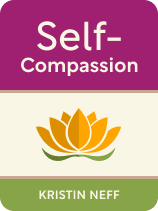

This article is an excerpt from the Shortform book guide to "Self-Compassion" by Kristin Neff. Shortform has the world's best summaries and analyses of books you should be reading.
Like this article? Sign up for a free trial here.
What is the book Self-Compassion about? What are the main takeaways of the book?
In Self-Compassion, Kristin Neff examines the benefits of self-compassion and the obstacles you have to overcome to embrace it. She also explains how self-compassion can improve your relationship with others, making you a better partner and parent.
Read below for a brief overview of the Self-Compassion book.
Self-Compassion by Kristin Neff
In her book Self-Compassion, Kristin Neff argues that when you respond to your failings and pain with kindness and comfort, you can manage the most challenging situations life throws at you. This entails understanding that you—like all people—make mistakes and suffer, are intrinsically worthy of care and comfort, and are connected to others through your suffering. These practices allow you to see beyond your immediate misery or crisis and recognize that others suffer, just as you do, and they make you less likely to feel isolated and get stuck in a negative space. (Neff doesn’t explicitly define “suffering,” but uses the word to describe emotional pain associated with being imperfect, making mistakes, failing, and criticizing and judging yourself for those things.)
(Shortform note: Psychotherapists both agree with and dissent slightly from Neff’s argument, saying that wallowing in your self-pity can be a positive thing, making you feel more comfortable around others who do the same. You can productively wallow in your despair by allowing your feeling of misery to exist without judging it. It also helps to not worry about getting stuck in it, since emotional pain usually only lasts several minutes.)
Neff is an Associate Professor of Educational Psychology at the University of Texas at Austin and a pioneer in self-compassion research, whose tenets are rooted in Buddhist psychology. She’s the co-founder of the nonprofit Center for Mindful Self-Compassion, co-developer of the Mindful Self-Compassion training and workbook, and author of Fierce Self-Compassion: How Women Can Harness Kindness to Speak Up, Claim Their Power, and Thrive. Self-Compassion was her first book, published in 2015.
What Is Self-Compassion?
Neff says that self-compassion is a mindset and practice in which you show yourself the same care for your own failures and pain that you’d show someone you care about deeply. Self-compassion centers on three practices:
- Be kind to yourself when you’re suffering—not critical and judgemental of yourself.
- Recognize that suffering is a universal human experience that connects you to others.
- Mindfully acknowledge your suffering as-is. In other words, don’t exaggerate or diminish your pain.
Neff says that when you change how you relate to your suffering by practicing self-compassion, you create a calm, safe space to reflect on it honestly and in the broader context of others’ challenging experiences. This allows you to:
- Address your challenges more thoughtfully than if you had simply reacted to them from a place of heightened emotion.
- Open up to and connect with others’ experiences of suffering, which tunes you into your connection to others and the broader human experience.
- Look for and appreciate positive things about yourself and the world around you.
The Three Practices of Self-Compassion
Now that you understand what self-compassion is, Neff provides the three practices that comprise it:
- Be mindful of your suffering, as is
- Be kind to yourself
- Recognize that suffering is the universal human connection point
The Benefits of Self-Compassion
You’ve learned about the three practices of self-compassion. Next, Neff explores three of its key benefits:
- Self-compassion fosters motivation
- Self-compassion contributes to a stable sense of self-worth
- Self-compassion reduces anxiety and depression
Obstacles to Self-Compassion
Neff says that despite the importance and benefits of self-compassion, many people spend their lives criticizing and judging themselves. This happens for two key reasons: 1) Cutting ourselves down is part of an evolutionarily-driven comparison game that humans play when they’re on autopilot and 2) children of critical parents often become self-critical adults.
Self-Compassion and Relating to Others
Finally, Neff examines how self-compassion can improve your relationships with others by allowing you to change your behavior so you can partner and parent more effectively. For learning how to be a better parent, Neff offers three tips:
- Be kind to yourself
- Don’t criticize yourself in front of your child
- Don’t criticize or shame your child when correcting them

———End of Preview———
Like what you just read? Read the rest of the world's best book summary and analysis of Kristin Neff's "Self-Compassion" at Shortform.
Here's what you'll find in our full Self-Compassion summary:
- The key practices, benefits, and obstacles to embracing self-compassion
- How self-compassion can improve your relationships with others
- The two biggest obstacles to self-compassion and how to overcome them






